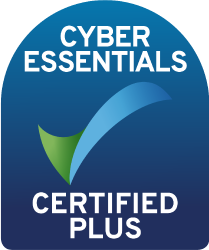The telecoms sector, as with any technology industry, is fast paced and always evolving.
With new technologies evolving and replacing older ones, it can be tricky to decide what technology you should use to replace your businesses telephony with.
But the choice is clear: VoIP
VoIP is a great option for any business looking to upgrade their telephone system and move to a more modern alternative. To understand what older technologies VoIP is replacing, we must first briefly understand what VoIP is and how it works.
What is VoIP?
VoIP stands for Voice over Internet Protocol—which sounds a lot more complicated than it really is. VoIp is basically a method for making and receiving calls using the internet, rather than telephone lines.

As you can see, VoIP removes the requirement for multiple fixed telephone lines, instead just using your businesses existing broadband connection. Not only does it remove the requirement for multiple fixed telephone lines, but also for a costly, on-premise telephone system. (We’ll come back to this in a bit).
An important thing to note is that VoIP itself is not a ‘new’ technology. It was invented in the 1970s, but has only been a feasible option for businesses in the last few years. The reason for the recent rise in VoIP is the announcement of the ISDN switch off, the increase in bandwidth and broadband speeds, and the implementation of cloud telephony.
How does VoIP work?
Without VoIP, when you pick up a telephone, and make a call, your voice travels along telephone lines, from your premises to the nearest street cabinet, then to your local telephone exchange. This network is called the ISDN.
This means that only one person can use a telephone line at any one time. If you have three telephone lines, you can have three simultaneous calls.
However, with VoIP, your voice travels along your broadband connection, not a dedicated telephone line. This means that you don’t need all these phone lines. Nor do you need to pay for calls.
If you’d like the technical difference, VoIP uses packet switching, rather than circuit switching. Instead of using ISDN circuits to transmit voice, it uses data packets.
Which older technologies does VoIP replace?
VoIP is a great replacement for a few different technologies. You could use VoIP to replace on-premise PBX telephone systems, ISDN or analogue telephone lines, and even call charges.
Let's break it down, to understand how VoIP can replace each of these older technologies.
On-premise PBX telephone systems
An on-premise PBX phone system is a box that sits in your businesses premises somewhere, providing your business with call control, call routing and more. It usually has multiple telephone lines running into it, and then multiple telephones coming off it as ‘extensions’.
These on-premise telephone systems are costly and use an older, analogue technology. With businesses becoming more and more mobile they’re seeking to utilise modern alternatives such as cloud-based VoIP telephone systems.
ISDN
The second technology that VoIP can replace is ISDN. ISDN is the network of telephone lines that make up the UK’s ‘telephone network’. The ISDN is made up of older, analogue circuits and cables which can often be costly to use and often incur faults.
Switching to VoIP removes the requirement for multiple telephone lines to your business. Naturally, if you’re removing these telephone lines, you’re also removing the cost associated with them. It is worth noting that your business still requires at least one line, to run your broadband and internet connection (which also runs your VoIP telephones).
Another reason why VoIP is a great replacement for ISDN is because the UK’s ISDN network is being switched off in 2025. In 2018, Openreach (who run the ISDN) made an announcement that they plan to switch off the ISDN telephone network. This will prevent businesses that have not yet moved to VoIP from making and receiving calls. Whilst these is no need to panic, you may wish to consider this when you next review your telephony.
Call Charges
One of the most costly aspects of a business telephone system is the call charges associated with it. These call charges have long been something that businesses just had to ‘deal with’. But that is no longer the case.
When you switch to a VoIP telephone system, you can essentially eliminate call charges. This is because you’re removing the aforementioned ISDN circuits. While I can’t speak for other providers, I know that our VoIP telephone systems come with 5,000 free minutes to UK 01/02 & 03 numbers as well as UK mobiles.

Is VoIP better than older technologies?
Yes. VoIP is much better than these older technologies. It helps reduce costs and remove out of date, old fashioned technology from your business. It makes your business more mobile too, moving your telephone system to the cloud.
You’ll see great benefits when you make the move. Such as free calls and better quality voice calls. As with all technologic evolutions, VoIP has many benefit’s over its predecessor. Perhaps the main advantage is it’s versatility. VoIP works in all sizes of business, big and small. It’s easily scalable and simple to use. It of course reduces costs too.
Have many people replaced their old PBX’s with VoIP?
While it’s hard to get an exact percentage of businesses that use VoIP, it is estimated to be between 35 and 50%. Which is quite a substantial number of businesses.
These businesses are all taking advantage of VoIP’s better, higher quality services. They’re also ready for the ISDN switch off in 2025.
Moving to VoIP can be a daunting process, but it doesn’t need to be seen as a big change. Its a simple process that could save your business thousands of pounds.






